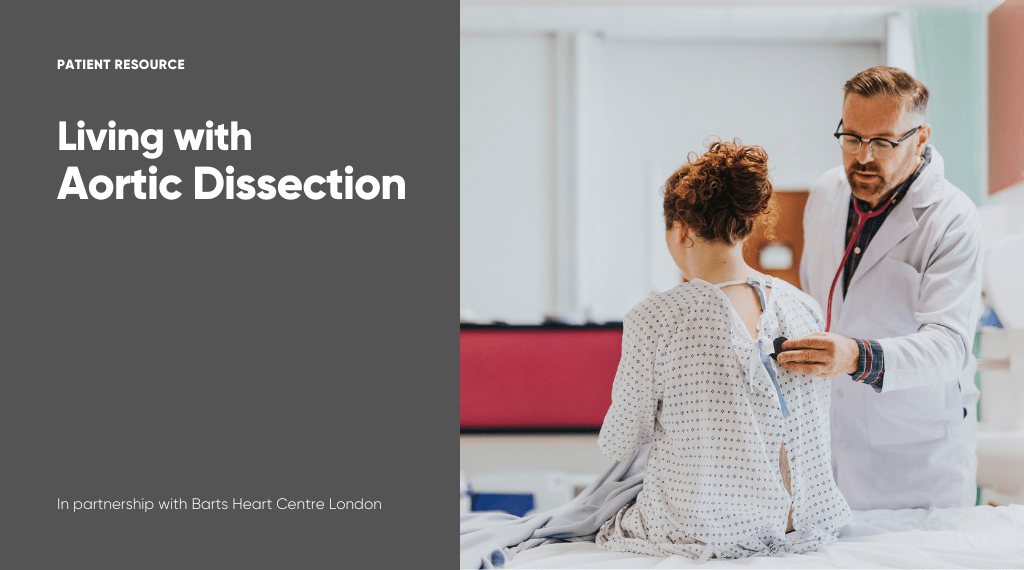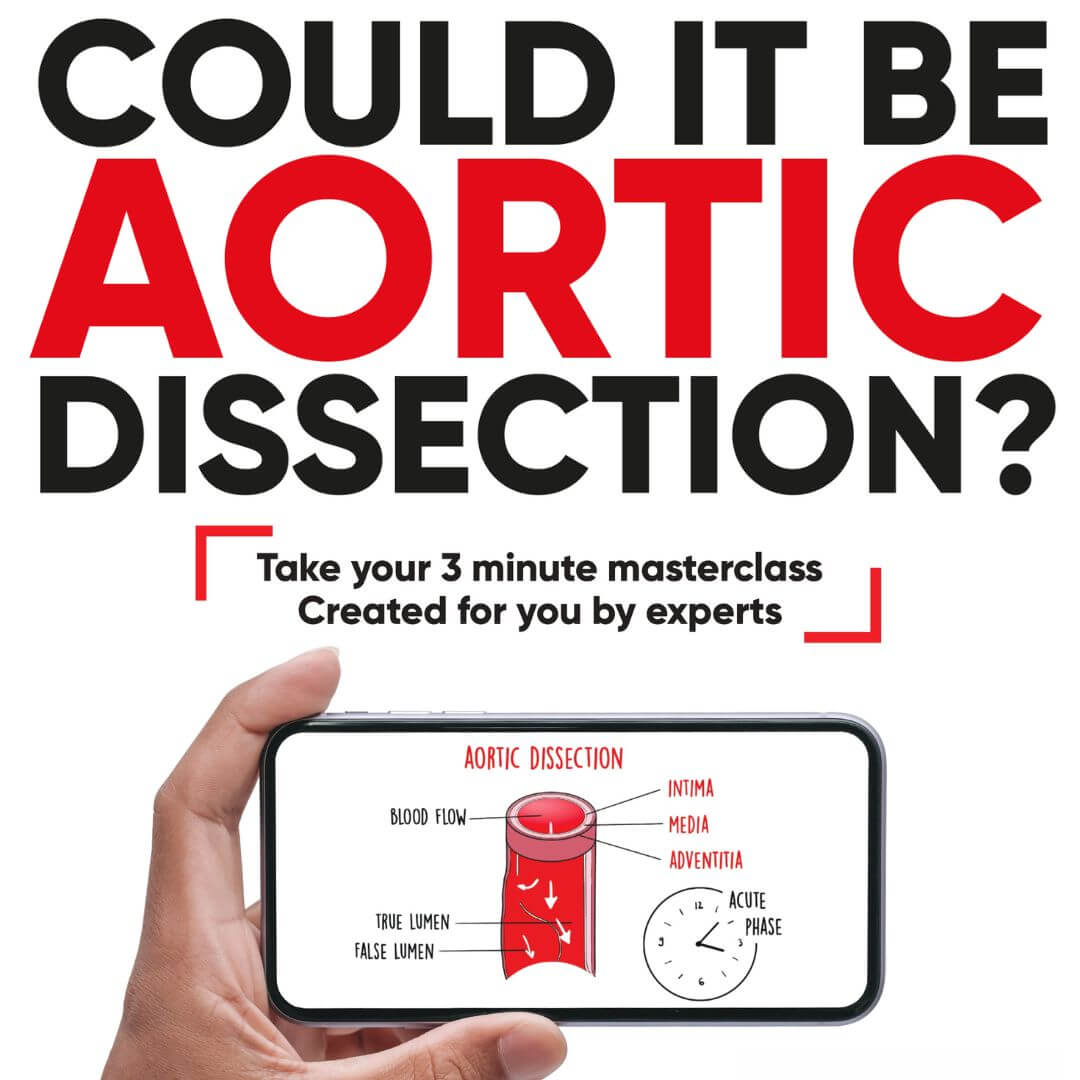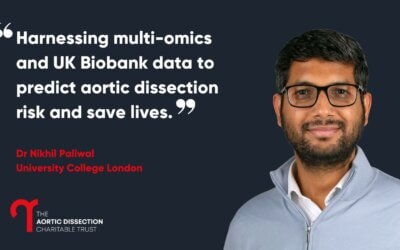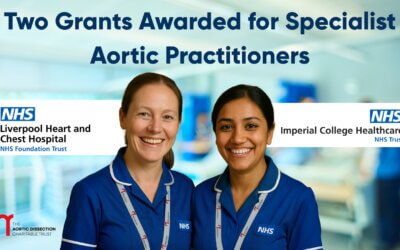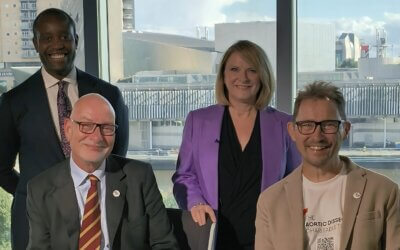In support of Aortic Dissection Awareness Day, volunteers from the charity have released a brand-new series of video podcasts. These episodes have been created to inform, guide and support those affected by aortic dissection, including patients, families and healthcare professionals. The series goes beyond general awareness by offering practical advice, expert opinion and first-hand accounts from survivors. Each conversation is hosted by Roy Sheppard, a former BBC News presenter, bringing together the voices of patients and leading clinicians in the field.
This initiative forms part of the charity’s broader mission to improve outcomes across the UK and Ireland. The podcasts provide clear and accessible content that reflects the real experiences of those living with aortic dissection. The topics explored are wide-ranging, from diagnosis and emergency care to recovery and psychological wellbeing. These episodes offer support that patients and families can return to at any stage of their journey.
The full series is available on major platforms, including Spotify, Apple Podcasts, and YouTube.
Episode One: What Is Aortic Dissection Really Like?
The opening episode introduces the realities of experiencing and treating aortic dissection. Survivors Martin Hilton and Edward “Monty” Montgomery describe their initial symptoms, the journey to diagnosis and the life-saving interventions they received. Their stories are interwoven with clinical insights from Professor Mark Field, Head of Aortic Surgery at Liverpool Heart and Chest Hospital. The discussion begins with a simple explanation of the anatomy of the aorta and outlines what makes dissection a time-critical emergency. The conversation addresses key causes including uncontrolled blood pressure, genetic syndromes and physical strain. There is a particular focus on the differences between type A and type B dissections and the unique challenges each one presents. Professor Field offers guidance on how patients and families can advocate for timely and accurate care. The importance of early recognition, public awareness and the role of emergency services is also explored. The episode concludes with a look at the national improvements underway, including the development of standardised diagnostic tools.Episode Two: Aortic Dissection Recovery Advice
This second episode examines what recovery looks like after surviving an aortic dissection. Dr Bejal Pandya, consultant congenital cardiologist at Barts Heart Centre, joins Monty and Martin for an in-depth discussion about the physical, emotional and practical aspects of recovery.
Listeners are taken through the different phases of post-operative care, from early hospital recovery to longer-term health management. Topics include medication adherence, managing blood pressure and returning to safe levels of physical activity. Dr Pandya explains how pre-dissection fitness levels can influence outcomes and shares advice tailored for both highly active and more sedentary individuals.
Monty and Martin speak openly about their own rehabilitation, including their mindset, exercise modifications and the emotional challenges of adjusting to a new normal. The episode also touches on family impact, cardiac rehabilitation and genetic testing, offering reassurance and realistic expectations for those at different stages of recovery.
Episode Three: The Hidden Struggles of Aortic Dissection Survivors
The third episode in the series explores the psychological side of aortic dissection. Clinical psychologist Dr Mark Griffiths, Lead Consultant Clinical Psychologist at Liverpool Heart & Chest NHS Foundation Trust, joins Monty and Martin to highlight the often-overlooked mental health impacts of surviving such a traumatic event.
Topics include emotional suppression, delayed trauma responses and the strain placed on families. Both patients share how they processed the aftermath of their medical emergencies and describe how emotional recovery often lags behind physical healing. Dr Griffiths explains how survivors can benefit from structured psychological support and underlines the importance of addressing mental wellbeing as part of ongoing care.
This episode also looks at how systemic improvements and advocacy can help reduce delays in diagnosis and treatment. The conversation is frank, empathetic and highly relevant for anyone seeking a deeper understanding of the lived experience of aortic dissection.
Supporting Patients at Every Stage
Each podcast in this series was developed with accessibility and inclusivity in mind. Whether someone is newly diagnosed or has been living with the condition for years, the series provides relevant and compassionate guidance. By combining the knowledge of leading specialists with the voices of those who have lived through it, the charity aims to offer a valuable resource that educates, reassures and empowers.
The charity is committed to expanding support for all those affected. This podcast series is one part of a wider strategy to raise awareness, improve diagnosis and support better outcomes.
Find More Support Online
If you found these podcasts helpful, we offer a wider range of free, trusted resources to support you on your aortic dissection journey. Created by patients and clinicians together, our online hub covers everything from diagnosis to long-term care, with clear explanations and expert advice tailored for you and your family.

